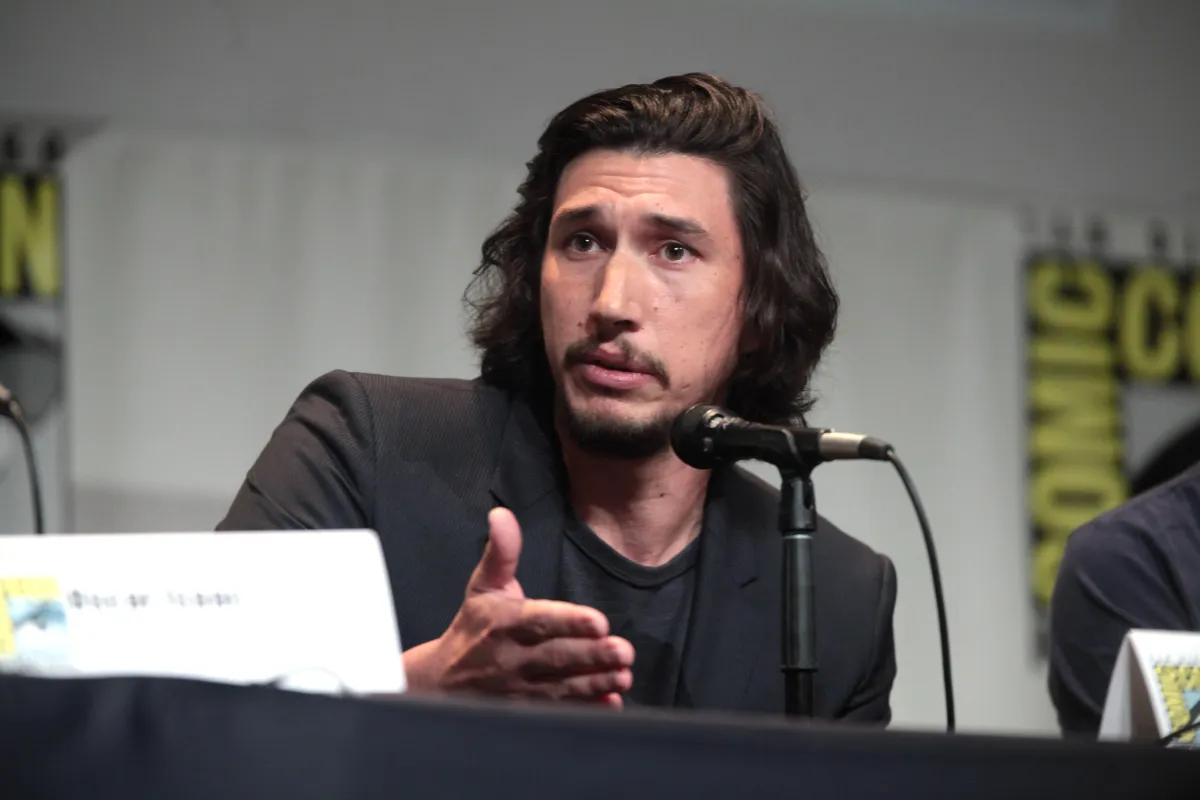Based on the events of Star Wars: The Force Awakens, it seems safe to assume that Episode VIII will revolve around Kylo Ren’s ongoing emotional turmoil. Although Adam Driver has to stay pretty tight-lipped about how that journey will look, he did confirm in an interview on Larry King Now that his character would continue to explore his “humanity”… insofar as Kylo Ren has any humanity left.
Specifically, the question was about what Adam Driver most looked forward to doing as Kylo Ren in Episode VIII, to which he replied:
“I think maybe this is such a general answer but you know, humanity. Even though it’s very much a blockbuster movie, and I’m aware of that, there was no taking that for granted and that we were forced to be general [in The Force Awakens]. There was a lot of plot points that we knew were operating in the first one, that we get to explain more in the second one, that kind of make both of them make sense. But they do kind of feel socially active to me. And George Lucas originally — a lot of Star Wars was in response to Vietnam and a lot of what I remember talking about with [Force Awakens director] J.J. [Abrams] and [Episode VIII director] Rian [Johnson] was this idea of terrorism, and two sides being morally justified to behave however they wanted to to get whatever they thought was absolutely correct.”
Once again, the fact that Star Wars is inherently political is rearing its ugly head… sorry, Bob Iger! But, as Adam Driver cites in his statements here, George Lucas had always intended the world of Star Wars to be “socially active” and written in a direct response to historical military conflicts. For example, Lucas said that the characterization of Palpatine was inspired by several different political leaders: Hitler, Napoleon, Caesar, and U.S. President Nixon, especially Nixon’s actions with regard to the Vietnam War, which George Lucas took a stance against by way of his work.
In discussing Star Wars, I think a lot of us fall into the trap of binary thinking and seeing the two sides as a one-to-one representation of liberal and conservative–but obviously that ignores other political ideologies (libertarian, socialist, etc), and it doesn’t tell the full story about the various influences that can be felt in Star Wars. The fascist regimes we’ve seen in Star Wars have been informed by the imperialist and fascist regimes of the past, but the radicalization and extremism that led to those movements has varied from situation to situation. That still means it’s worth considering what they mean to us now, given the history that’s happened since the original Star Wars trilogy came out, and how our cultural attitudes have changed (for the worse, in some cases).
As Adam Driver explains here, the Empire would see the Rebels as “terrorists” rather than the heroic insurgents that we see. These questions of morality and resorting to different forms of violence came up already in Rogue One, and it’ll be interesting to see if those questions arise again for the heroes fighting the First Order in the coming movies. As Rey trains to be a Jedi, she may discover she doesn’t entirely agree with the Jedi’s teachings. Who knows?
The themes about extremism, radicalism, terrorism, and the use of violence can make for a very compelling story, and these are questions that have not ever had easy answers at any point in history. I’m interested to see how Kylo Ren changes in the next two movies, since I have no doubt that he will.
(via CBR, image via Gage Skidmore / Flickr)
Want more stories like this? Become a subscriber and support the site!
—The Mary Sue has a strict comment policy that forbids, but is not limited to, personal insults toward anyone, hate speech, and trolling.—
Follow The Mary Sue on Twitter, Facebook, Tumblr, Pinterest, & Google+.









Published: Jan 5, 2017 01:07 pm